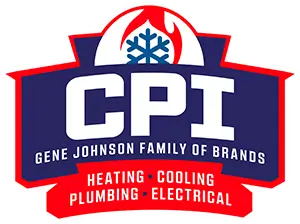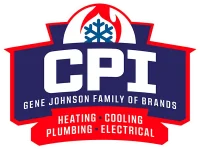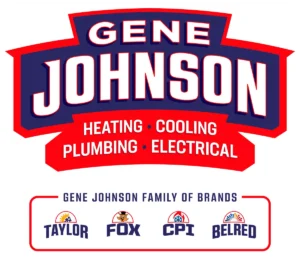Inverter vs Non-inverter AC
Air conditioners are vital components that greatly impact your comfort. However, some homeowners still settle for old AC installations. Some of us settle for air conditioners with unreliable and erratic airflow thinking it helps us save money.
However, basic compressors and rudimentary air conditioning cannot guarantee our comfort, even costing us more monthly expenses for a less reliable payoff. Fortunately, some air conditioners make better “bang for your buck” investments.
While it may be challenging to choose between different air conditioners, inverter air conditioners are definitely more efficient than non-inverters. However, you must spend a little more to install innovative air conditioners.
Spending on inverter unit costs is more prudent than settling for basic AC systems. Opting for more efficient AC installations may grant users more energy savings and longer-lasting comfort.
Remember that observing routine maintenance and tune-ups can only retain system efficiency and prolong stability. Still, you can only delay system deterioration, you may not upgrade your older system’s cooling capacity or efficiency.
Regular maintenance is not enough to salvage your old inefficient air conditioner to endure more summers. It is only a matter of time before your air conditioner finally succumbs to wear and tear.
Traditional air conditioners may be unreliable, costing more maintenance and operational expenses. Innovative air conditioners, like inverter AC units, provide more efficient, stable, and reliable cooling airflow.
Invest in innovative air conditioners to avoid problematic AC issues in the future.
The Difference Between Inverter and Non-Inverter AC Systems
Non-inverter air conditioners are conventional models. They are older AC installations still abundant in homes built before the 1980s. While air conditioners installed in the 1980s have long outlived their life expectancy, some residents try prolonging their system usage.
Some non-inverters are still in circulation, with manufacturers producing new or renewed AC units. They cost nearly thirty percent less (-30%) than more innovative AC options. However, they do not make smart investments.
Non-inverters may come at a fraction of the price of their innovative counterparts, but they are less sustainable installations. They may cost twenty to forty percent more (+20% – +40%) monthly energy costs.
Investing in inverter-type air conditioners may initially cost you more. However, they yield energy savings that help users earn back the differential amount spent on initial costs.
The inverter’s energy efficiency is unparalleled by its traditional counterpart. Inverter air conditioner features include vast innovations, supplementing efficiency, stability, and longevity.
The inverter’s more sophisticated system stabilizes components, optimizing cooling functions, resulting in more reliable airflow and longer-lasting air conditioning. While inverter air conditioners may cost more upfront, they make worthy investments.
Inverter VS Non-Inverter ACs Side-by-Side
Inspect the unit for its specifications to determine the type of your existing installation. Inverter types are often labeled “inverter” on a white, silver, gold, or yellow sticker.
When buying a new inverter, always inquire more about your desired air conditioners before finalizing your purchase. Knowledgeable sales representatives may provide further insight into the AC units users want to procure.
Inverters and non-inverters often look similar, with minute aesthetic differences. Users can’t always tell based on unit designs, but inverters vastly differ from non-inverters. You might find their differences indicated on stickers on the box or the units themselves.
Still, buyers should only purchase units directly from manufacturers,certified distributors, and reliable resellers. It also helps to know the difference between the two to differentiate AC units without any direct indicators, such as stickers and labels.
Below are the differences that distinguish inverter air conditioners from non-inverter types.
| Features | Non-Inverter | Inverter |
| Temperature Controls | ON/OFF | Variable Speed |
| Compressor | Fixed | Flexible |
| Average Wattage | 800-1000W | 800-950W |
| Average SEER Ratings | 8-9.5 SEER | 13-21 SEER |
Temperature Controls.
Temperature controls are important in overall system efficiency. Your air conditioner’s stability and reliability depend on how versatile temperature adjustments are.
You can turn a non-inverter ON or OFF; those are your only options for controlling these AC units. Non-inverters have limited temperature adjustments, providing users with only two settings. Toggling between only two settings renders inaccurate cooling output.
Switching non-inverters on produces full-blast cooling, and turning it off completely shuts all systems down. With no functions in between, your air conditioner can only run at full speed or not at all.
Inverters have variable speed functions, providing users with additional options. Unlike non-inverters, inverters offer users more diverseoptions, which include variable speed functions. While users may still alter fan speed on non-inverter ACs, it doesn’t directly impact compressor functions.
Adjusting fan settings on a non-inverter can only lessen or heighten direct output by altering airdistribution accordingly. A non-inverter may withhold airflow to fit lower fan speeds, which may even build pressure and impact internal components over time.
Only inverters can safely and efficiently regulate internal functions along with fan speed adjustments. It alters motor speed to provide users with more accurate controls.
Temperature retention greatly impacts energy consumption, and turning air conditioners on and off makes it nearly impossible. You can lower and heighten blower motors according to your preferences, helping retain temperatures.
The variable speed function is the most significant advantage of inverters. It can optimize energy consumption while achieving temperatures more efficiently.
Compressors.
Variable speed functions may be attributed to the compressor, which is every air conditioner’s most critical component. Faulty compressors warrant costly repair and replacement.
Fixed compressors immediately run and remain at full speed until switched OFF. The “all or nothing” concept makes these compressors more susceptible to wear and tear, resulting in shorter equipment life and erratic temperatures.
Fixed compressors cannot be altered, providing users with less efficient operations. They may also result in frequent mechanicalmalfunctions and total systemfailure.
Compressors with variable speed functions are more flexible, better-preserving components, which promote stability. Stable functions cultivate overall efficiency, generating more reliable cooling at fewer costs.
Users may save more on maintenance services with more versatile compressors. Flexible compressors are less susceptible to malfunctions, prolonging their lifespan and effectiveness.
Average Wattage
Watts are electrical units used to measure the average consumption of various appliances. The higher the wattage, the more electricity the appliance consumes to operate.
Air conditioners with high wattages require more power to deliver cooling output. It often results in more costly energy bills.
However, most believe AC units with higher wattage deliver better and faster cooling. While higher wattage means they consume more electricity, it does not translate to high-powered systems that result in more efficient cooling.
Still, lower wattages may result in inferior functions. Refrain from mistaking low-wattage air conditioning systems as “efficient or effective.”
Only air conditioners with appropriate wattage can efficiently deliver adequate cooling. Most inverters have sufficient wattage and can better convert electrical units to power cooling functions.
What Are SEER Ratings?
Various measurements allow users to tell how well air conditioners utilize the power supply. The Seasonal Energy Efficiency Ratio (SEER) is the most industry-specific rating buyers may use to gauge air conditioners.
SEER ratings indicate how efficiently air conditioners produce cooling. SEER measures an air conditioner’s potential cooling capacity against its yearly energy consumption. The higher the SEER rating, the less energy air conditioners consume to produce cooling output.
Air conditioners with 14 SEER and above are considered energy-efficient. Inverters boast an average range of 13 to 21 SEER, much higher than their non-inverter counterparts. Non-inverters have inferior SEER ratings, averaging 8 or 9 SEER.
Homeowners seldom use air conditioners against freezing weather conditions. Lower SEER ratings may be good enough for colder climates like Washington. Still, opting for air conditioners with higher SEER ratings helps users rake in energy savings.
Efficient air conditioners in colder climates may result in negligible energy costs. However, homeowners hesitate against their initial costs.
Are Inverter-Type Air Conditioners Expensive?
Inverter AC systems may be significantly more expensive than non-inverter types. However, they boast unparalleled features that may be worth it in the long run. While inverter air conditioners may cost more, they are worthy investments.
Inverter air conditioners often boast energy efficiency, which may limit their advantages to economic benefits. Energy efficiency encompasses various facets, including economic and environmental factors.
Energy efficiency impacts useable output and exhaust emissions, affecting your air conditioner’s overall sustainability. Inverters use less energy to regulate output and prevent excessive emissions.
Are Inverter Air Conditioners Better Than Non-Inverters?
Air conditioners are sophisticated mechanisms that adapt to their surrounding environment. Various extenuating factors must be considered before deciding which AC units are “better” than the other.
The air conditioner that suits your needs best is always the “better” option. We cannot decide which is better for your home without supplemental information.
However, inverters generally have better configurations than non-inverter air conditioners. Air conditioners with diverse temperature controls and versatile compressors may provide your home with longer-lasting equipment, heightened stability, and energy savings.
Inverters are far more efficient, sustainable, and reliable. They make suitable options for homes and establishments. Even Washington residents may benefit from inverters.
Reputable Inverter Installation Services in Mount Vernon, WA.
Are you thinking of upgrading your non-inverter to more innovative AC installations? Opting for the inverter upgrade is wise and prudent.
While Washington remains cold, rolling the dice on climate change is hard. Next summer may not be as mild or breezy.
Protect yourself from unpredictable temperature shifts by installing more reliable air conditioners now. We’ve got just the guys for you to help install inverters and provide other AC services.
CPI Plumbing & Heating
Reach out to CPI technicians for AC Repair & Replacement services. Our technicians are licensed and insured to protect our clients from receiving haphazard services.
At CPI, client satisfaction is of utmost importance. We keep your comfort and convenience at the center of our services. Our technicians won’t leave until you are 100% satisfied with our workmanship.
Our professionals conduct expert services using top-of-the-line HVAC equipment and industry-standard techniques. We ensure our clients only receive top-tier services with a combination of our patented services and equipment.
Never settle for less again! Partner with CPI professionals to optimize your cooling equipment today.


